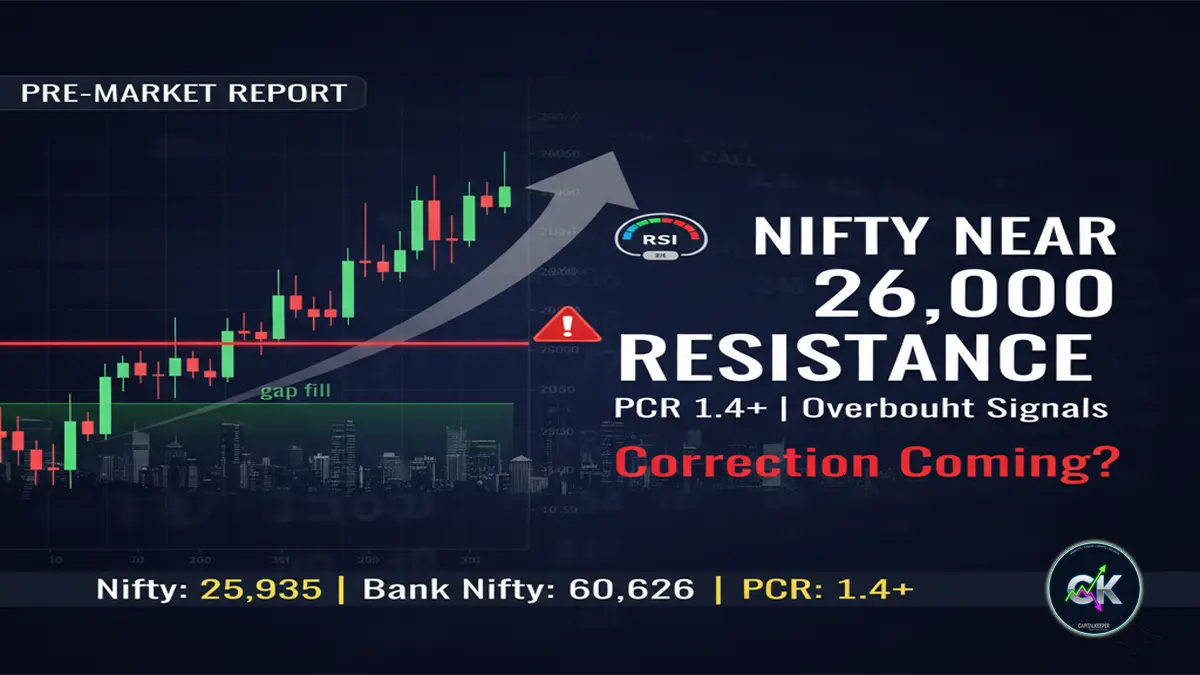What is IPO Lot Size? A Beginner’s Guide to Smart IPO Investing
By CapitalKeeper | Beginner’s Guide | Indian Sock Market | Market Moves That Matter I 05th July 2025
As Indian investors show increasing enthusiasm for Initial Public Offerings (IPOs), it’s essential to understand one of the most basic yet critical concepts: the IPO lot size. Whether you’re a beginner or a seasoned investor applying through platforms like Zerodha, Groww, or Upstox, understanding lot size can help you make smarter IPO investment decisions.
Definition: What is IPO Lot Size?
IPO lot size refers to the minimum number of shares you must apply for in an IPO. You cannot apply for just 1 or 2 shares; you must bid in multiples of the lot size as defined in the offer document.
🔹 Example:
If the IPO lot size is 30 shares, and the price band is ₹100–₹105, your minimum investment would be:
- ₹100 x 30 = ₹3,000 (lower band)
- ₹105 x 30 = ₹3,150 (upper band)
📌 Why Does Lot Size Exist?
Lot size is designed to:
- Standardize the bidding process
- Ensure fair distribution across retail, HNI, and institutional categories
- Maintain manageable application sizes for registrar & exchange
How is IPO Lot Size Determined?
The lot size is decided by the company and the book-running lead managers (BRLMs) in consultation with SEBI, based on:
- IPO price band
- Retail investor affordability (SEBI requires the minimum investment to be within ₹10,000–₹15,000 for retail)
- Total number of shares being offered
- Face value and market appetite
💡 Retail vs HNI vs Institutional Investors: Lot Size Impact
| Investor Category | Minimum Investment | Lot Size Applies? | Application Method |
|---|---|---|---|
| Retail Investor | ₹10,000–₹15,000 | Yes ✅ | ASBA / UPI / Bank |
| HNI (High Net Worth) | ₹2 lakhs+ | Yes ✅ | ASBA only |
| Institutional | ₹10 crores+ (typical) | No (block deals) ❌ | Anchor / QIB route |
📈 Can You Apply for More Than One Lot?
Yes, retail investors can apply for up to ₹2 lakhs worth of shares. If one lot is worth ₹15,000, you can apply for 13 lots max (₹15,000 x 13 = ₹1,95,000).
However, applying for more lots doesn’t guarantee allotment. IPOs with high oversubscription often go to lucky draw/lottery systems.
What Happens If You Don’t Get Allotted?
- The IPO registrar will refund the blocked amount (usually within 5 working days).
- No interest is paid for the blocked duration.
- You can reapply in future IPOs.
Pro Tip from a Financial Advisor
Always calculate your exposure and stick to a budget. Just because you can apply for 13 lots doesn’t mean you should. Focus on the business model, valuations, and growth prospects of the IPO rather than overbidding.
📌 Real-World Example: Tata Technologies IPO
- Price Band: ₹475–₹500
- Lot Size: 30 shares
- Minimum Investment: ₹15,000
- Retail Max: ₹1,95,000 (13 lots)
How to Check Lot Size Before Applying
- Visit SEBI’s official website
- Check on your broker’s IPO section (Zerodha, Groww, AngelOne, etc.)
- Look into the company’s Red Herring Prospectus (RHP)
- View recent IPO announcements on BSE/NSE websites
📌 Conclusion: IPO Lot Size is the Foundation of Smart IPO Investing
Lot size may seem like a technicality, but it plays a crucial role in capital planning, application strategy, and risk management. For retail investors, understanding lot size helps align IPO investments with your financial goals and expectations.
📌 For daily trade setups, technical learning, and smart investing tips, stay tuned to CapitalKeeper.in
📌 For more real-time updates, trade setups, and investment insights — follow us on [Telegram] and subscribe to our newsletter!

📌 Disclaimer
The content provided on CapitalKeeper.in is for informational and educational purposes only and does not constitute investment, trading, or financial advice. While we strive to present accurate and up-to-date market data and analysis, we make no warranties or representations regarding the completeness, reliability, or accuracy of the information.
Stock market investments are subject to market risks, and readers/investors are advised to conduct their own due diligence or consult a SEBI-registered financial advisor before making any investment decisions. CapitalKeeper and its authors are not liable for any loss or damage, direct or indirect, arising from the use of this information.
All views and opinions expressed are personal and do not reflect the official policy or position of any agency or organization. Past performance is not indicative of future results.By using this website, you agree to the terms of this disclaimer.
















Leave a Reply